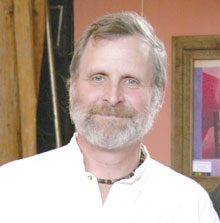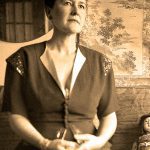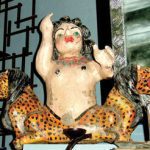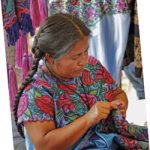Uncommon Common Sense
By Bill Frayer
billfrayer@gmail.com
The Arts: A Tool against Authoritarianism

So I suppose it was no surprise that Donald Trump has proposed eliminating all federal funding for the National Endowment of the Arts and the National Endowment for the Humanities in his first budget plan. I’m sure he would like to eliminate Saturday Night Live, if he could!
Why are authoritarian leaders so fearful of free artistic expression? The arts, in all forms, have traditionally been an effective means of protest that can give voice to the powerless against a repressive government. Just recently, New York City’s Public Theatre enraged conservatives by staging a version of Shakespeare’s Julius Caesar in which the title character bears a distinct and unflattering resemblance to the President.
History is replete with many examples of effective protest expressed in various artistic media.
Diego Rivera’s and Jose Orozco’s murals here in Mexico have routinely depicted the power brokers of the church, hacienda owners and greedy capitalists as demonic. Picasso’s famous Guernica pictures the horrors of the Spanish Civil War in vivid detail. Pinochet, on assuming power in a 1973 coup, ordered Chilean muralists to be arrested, tortured and exiled.
Poetry has always been a vehicle for political statements. Tennyson’s “Charge of the Light Brigade” depicted the horrors of war, as did Wilfred Owen’s “Dulce Et Decorum Est” and Randall Jarrell’s “Death of the Ball Turret Gunner.” Jose Marti, the beloved Cuban poet and author of Guantanamera, was executed for his writing by the Cuban regime.
Theater has been used in similar ways. Bertolt Brecht criticized the hypocrisy of the Church and political leaders in 1920’s Germany when people were suffering from poverty and hunger in the Wiemar Republic. The cast of Hamilton publicly rebuked Vice President Pence after a performance in Washington during the Inauguration, for the Administration’s racist stance on immigrants and on gay, lesbian and transgender people.
Of course, we all remember the strong voice American folk music played in resisting war and economic unfairness in the 20th century. Artists like Woody Guthrie, Bob Dylan, Phil Oches, Pete Seeger and many others devoted their careers to protest music. Political art has also included film, performance art, dance, puppet and even graffiti.
Today we are obviously in a period of political turmoil. Income inequality has created a situation in which the wealthy are controlling more while average workers are stuck with stagnating wages. Right-wing and racist groups are promoting their values on Internet outlets, often promoting fake stories to make their arguments. Immigrants are under increasing threat of deportation; even legal immigrants are the targets of hate speech. LGBT citizens are, once again, targets of intolerance and hate. Politicians in many US states are trying to cut the safety net for poor people who are facing increasing threat from lack of medical care, affordable housing and experiencing food insecurity.
We need the arts now, more than ever. Consuming art in all forms, from literature to theater to drama to music to street theater enriches us all. Perhaps most importantly, it enables us to experience life through the eyes of others, increasing our empathy. We need this now, more than ever.
- April 2024 – Issue - March 31, 2024
- April 2024 – Articles - March 31, 2024
- April 2024 - March 31, 2024









